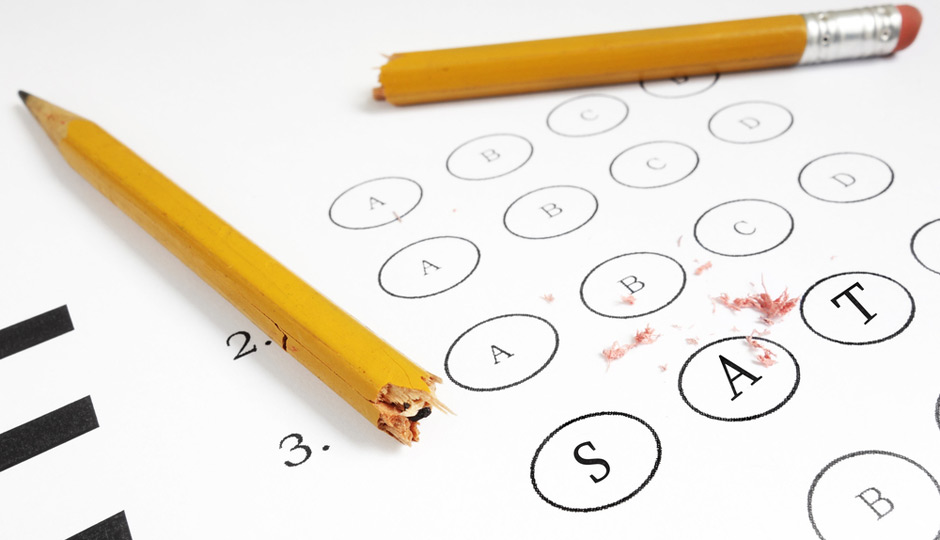New SAT to Focus on “College and Career Readiness.” So What Did the Old One Measure?
A revamp of the College Board's bread and butter test proves what its critics have long suspected.

Photo | Shutterstock.com
Finally facing the music about the test’s lack of efficacy, the rollout of a new Scholastic Aptitude Test (SAT) says that the College Board has learned what the rest of us have already known for a very long time: That despite being a cash cow, the SAT is pretty damned worthless.
The College Board, a non-profit organization that administers academic placement exams such as the SAT and subject-based Advanced Placement (AP) testing, has announced that it will revamp its bread and butter (the SAT) beginning in spring 2016.
The costs associated with the SAT have long been a sticking point for those who are critical of the test’s merit, citing that an individual’s inability to afford preparing for and taking the test disadvantages lower-income students and perpetuates inequality relative to college enrollment.
Add to that the obsolete nature of most vocabulary words found in the reading section, the impracticality of the math section, and the added burden of a relatively-new writing section, and the test seems to unofficially require prep work on how to tackle it all in over three hours, with skill and calculated guesswork.
The current SAT is a measure of access. It does little to predict academic achievement or inform a student’s capacity, which is why the ACT is rising in popularity, and even more schools are offering test-optional admissions policies.
And so the College Board’s willingness to scrap the way the SAT has been designed all these years proves its naysayers right.
“The redesigned SAT will focus on the knowledge and skills that current research shows are most essential for college and career readiness and success,” the College Board site says. “The exam will reflect the best of classwork.”
The repeal includes a withdrawal of penalties for guessing, comparable to the ACT’s score system, and signals an acknowledgement from The College Board that the old way just doesn’t serve today’s students: It doesn’t prepare them for anything, it just tests how strategic they are as test takers, a training best obtained through with costly prep coursework, once again lining the College Board’s coffers.
Though it’s not-for-profit, the College Board has made a pretty penny since Gaston Caperton was recruited to run it in 1999, according to a report in Bloomberg. Revenue during Caperton’s reign more than doubled, thanks in large part to the numerous fees associated with College Board test taking, score management, and preparation, even with the millions of dollars in fee waivers it provided.
It’s interesting to note that, as per the same Bloomberg report, the College Board was founded by elite institutions such as Harvard and 11 other universities in 1900 to standardize admissions “based on merit rather than family connections.”
Though the College Board says it endeavors to “connect students to college success and opportunity,” the old SAT just doesn’t past the test. Here’s hoping the new test does a better job.
Follow @MF_Greatest on Twitter.


